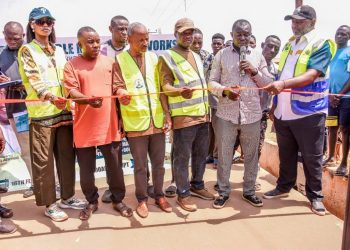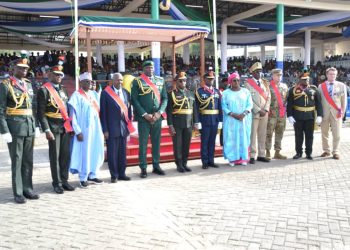By Nkechi Eze
In a major stride toward raising the quality bar for locally manufactured goods, the Standards Organisation of Nigeria (SON) has awarded its prestigious Mandatory Conformity Assessment Programme (MANCAP) certification to 44 companies and 138 products in Oyo State. This development marks a significant milestone in Nigeria’s drive to boost industrial standards, deepen consumer confidence, and enhance global competitiveness for local manufacturers.
The certifications were issued under the MANCAP scheme, SON’s flagship regulatory programme designed to ensure that all locally manufactured products meet the relevant Nigerian Industrial Standards (NIS). The initiative remains a cornerstone of SON’s broader mandate to promote quality assurance and create an enabling environment for Nigerian goods to thrive both at home and abroad.
In a statement personally shared by the Director General of the Standards Organisation of Nigeria, Dr. Ifeanyi Chukwunonso Okeke, he described the latest certification exercise as “a strong statement of our collective commitment to quality.” He added that the achievement reflects a growing consciousness among Nigerian manufacturers to embrace standardisation as a competitive advantage rather than a regulatory burden.
“This achievement reflects the growing readiness of Nigerian manufacturers to meet national standards and compete on the global stage,” Dr. Okeke stated. “Through the Mandatory Conformity Assessment Programme (MANCAP), we continue to support local producers in building safer, more reliable, and internationally accepted products.”
The DG further reaffirmed SON’s commitment to working hand-in-hand with stakeholders in the manufacturing sector to strengthen the technical infrastructure needed to support quality production and compliance with international best practices.
“As Director General, I remain committed to ensuring that SON provides the technical backing, regulatory guidance, and capacity support needed to position ‘Made in Nigeria’ as a global standard for excellence,” Dr. Okeke said.
Industry watchers have hailed the development as a timely boost for Nigerian-made products, particularly as the country continues to diversify its economy and seeks to maximise the benefits of the African Continental Free Trade Area (AfCFTA). With global markets increasingly demanding traceability, product safety, and regulatory conformity, MANCAP certification is becoming a valuable asset for businesses aiming to expand beyond Nigeria’s borders.
The certification of 138 products underlines the growing importance of quality management systems in achieving business sustainability. It also highlights SON’s strengthened surveillance, inspection, and stakeholder engagement efforts especially in Oyo State, which is fast emerging as a manufacturing hub in the Southwest.
Some of the certified product categories include processed foods, industrial chemicals, electrical appliances, building materials, household goods, and packaged water. Each subjected to rigorous testing and quality assessments before earning the MANCAP seal.
The MANCAP certificate not only serves as a badge of compliance with national standards but also reassures consumers about the safety, durability, and reliability of certified products.
Dr. Okeke extended his heartfelt congratulations to all certified companies, noting that their dedication to quality and compliance is helping to reposition Nigeria’s manufacturing landscape.
“Congratulations to all the certified companies. Your dedication to compliance and quality moves Nigeria forward,” he said.
In recent years, SON has amplified its outreach to manufacturers across the country, offering technical assistance, training, and sensitisation programmes to drive voluntary compliance with standards. The success recorded in Oyo State, officials say, is a model the agency is determined to replicate nationwide.
With the latest certification wave, SON continues to build momentum behind the “Made in Nigeria” brand, reinforcing its vision of a self-reliant economy anchored on quality-driven industrial growth.















